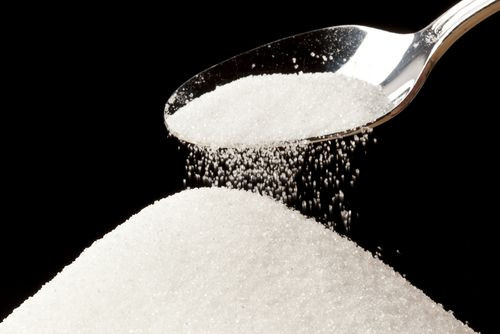Eating Too Much Sugar Can Double Your Risk Of Dying From Heart Disease

Many experts believe that in the average U.S. diet, added sugar — the kind that does not occur naturally but is introduced during the preparation or processing of food — is much too high, especially among children. Now a new study, published Monday in JAMA Internal Medicine, finds that eating added sugar increases a person’s risk for death from cardiovascular disease (CVD). “Compared with those who consumed approximately 8.0 percent of calories from added sugar, participants who consumed approximately 17 percent to 21 percent … of calories from added sugar had a 38 percent higher risk of CVD mortality,” Dr. Quanhe Yang, Centers for Disease Control and Prevention (CDC), and his co-authors wrote in their new study. “This relative risk was more than double for those who consumed 21 percent or more (highest quintile) of calories from added sugar.”
Inconsistent Guidelines
Major sources of added sugar include sugar-sweetened beverages — a can of regular soda contains about 35 grams of sugar (roughly 140 calories) — grain-based desserts, fruit drinks, dairy desserts, and candy. When you consider this list, it's obvious that too many of us eat more added sugar than experts recommend for a healthy diet. Yet figuring out exactly how much is too much may be an impossible task as recommendations vary by wide margins. The World Health Organization, for instance, recommends added sugar make up less than 10 percent of total calories, the Institute of Medicine suggests less than 25 percent, and the American Heart Association advocates limiting added sugars to less than 100 calories each day for women and 150 calories each day for men. In short, there is no universally accepted threshold for unwholesome levels of sugar.
For the current study, researchers from the CDC in Atlanta and Harvard School of Public Health in Boston examined trends of added sugar consumption over time as a percentage of daily calories in the U.S. diet. Among Americans older than 2 years of age, the researchers discovered the average intake of added sugar increased from an average of 235 calories per day in 1977-1978 to 318 calories per day in 1994-1996. Looking at more recent numbers among U.S. adults, the researchers found the average percentage of daily calories from added sugar increased from 15.7 percent in 1988-1994 to a high of 16.8 percent in 1999-2004.
On a positive note, the average decreased from its high to about 14.9 percent in the years 2005 through 2010. During that timespan, added sugar made up about 10 percent or more of total calories for most people (just under three-quarter of all adults or 71.4 percent), while 25 percent or more of total calories could be found in added sugar for one out of every ten adults. Quantifying exactly how much added sugar people ate each day was only the first part of the task; next, the researchers investigated the relationship between sugar and deaths from heart disease.
Exponentially Increasing Risk
According to the CDC, about 600,000 people die of heart disease in the U.S. every year — one in every four deaths. Moreover, it is the leading cause of death among both men and women. Such dramatic numbers inspired the current study in which CDC researchers investigated not only how much added sugar most Americans eat each day but also the potential links between the sweet treat and heart disease. In particular, they wanted to understand the risk beyond the obesity it causes, so after determining the exact percentage of added sugar consumed on avearage, Yang and his colleagues used national health survey data to investigate possible links between sugar intake and heart disease mortality. Crunching the numbers, they documented 831 CVD deaths during an average follow-up period of 14.6 years. After adjusting for various factors, such as age and sex, the researchers calculated the hazard ratios of mortality due to heart disease across quintiles of the percentage of daily calories consumed from added sugar to be 1.00, 1.09, 1.23, 1.49, and 2.43, respectively.
In plain English, those who eat the most sugar each day are 2.43 times as likely to die of heart disease when compared to those who eat the least. “These findings were largely consistent across age group, sex, race/ethnicity (except among non-Hispanic blacks), educational attainment, physical activity, health eating index, and body mass index,” the authors concluded in their study. "Our results support current recommendations to limit the intake of calories from added sugars in U.S. diets."
In a related commentary, Dr. Laura A. Schmidt, UC San Francisco, wrote “[This study] underscores the likelihood that, at levels of consumption common among Americans, added sugar is a significant risk factor for CVD mortality above and beyond its role as empty calories leading to weight gain and obesity.” If you had any doubts, know now that sugar is most certainly a killer. Indulging the sweet tooth is a very costly habit.
Source: Yang Q, Zhang Z, Gregg EW, Flanders D, Merritt R, Hu FB. Added Sugar Intake and Cardiovascular Diseases Mortality Among US Adults. JAMA Intern Med. 2014.
Published by Medicaldaily.com



























